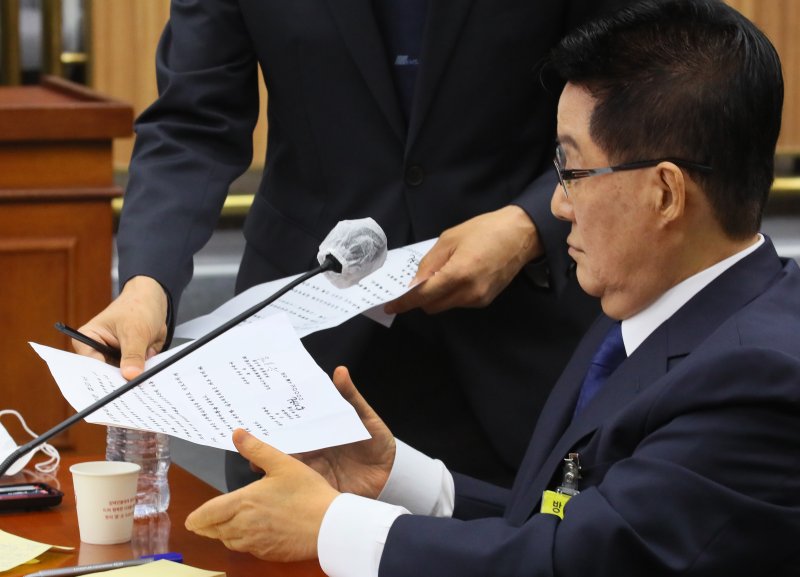Rare leopard frog found beyond its known range in Southwest

FILE - In this April 17, 2008, file photo a threatened Chiricahua leopard frog comes out from hiding in a special tank at a U.S. Fish and Wildlife Service office in Albuquerque, N.M. A U.S. Forest Service volunteer recently photographed the rare frog in an earthen stock tank near the town of Camp Verde in central Arizona, the agency said Thursday, July 23, 2020. The aquatic frogs were thought to be only in eastern Arizona, western New Mexico and northern Mexico but historically were more widespread. (AP Photo/Susan Montoya Bryan, File)
A U.S. Forest Service volunteer recently photographed a Chiricahua leopard frog in an earthen stock tank near the town of Camp Verde in central Arizona, the agency said Thursday. Biologists later confirmed that at least 10 of the frogs were living there.
The aquatic frogs were thought to be only in eastern Arizona, western New Mexico and northern Mexico but historically were more widespread. The frogs’ numbers have declined because of habitat loss, disease and predators.
Audrey Owns of the Arizona Game and Fish Department said the frogs could have moved into lower elevations in Camp Verde because they were seeking protected habitat or warmer temperatures that guard them from fungal disease.
The aquatic frogs were thought to be only in eastern Arizona, western New Mexico and northern Mexico but historically were more widespread. The frogs’ numbers have declined because of habitat loss, disease and predators.
Audrey Owns of the Arizona Game and Fish Department said the frogs could have moved into lower elevations in Camp Verde because they were seeking protected habitat or warmer temperatures that guard them from fungal disease.

FILE - In this April 17, 2008, file photo a pair of threatened Chiricahua leopard frogs in a special tank at a U.S. Fish and Wildlife Service office in Albuquerque, N.M. The rare frog has been found beyond its known range in the U.S. Southwest. A U.S. Forest Service volunteer recently photographed a Chiricahua leopard frog in an earthen stock tank near the town of Camp Verde in central Arizona, the agency said Thursday, July 23, 2020. The agency says biologists later confirmed that at least 10 of the frogs were living there. (AP Photo/Susan Montoya Bryan, File)
The U.S. Fish and Wildlife Service listed the frogs as threatened in 2002. Part of the recovery efforts have included rearing the frogs in captivity and releasing them into stock tanks. A recovery team also has been supplementing water amid a prolonged drought, removing livestock, deepening stock tanks and controlling erosion.
“Large-scale and varied recovery efforts, such as those carried out in the Fossil Creek watershed, are vitally important since biologists do not know exactly which efforts will be successful, or how frogs will adapt to changes in natural conditions, such as disease and long-term drought,” said Janie Agyagos, a wildlife biologist for the Coconino National Forest’s Red Rock Ranger District.
Biologists plan to visit aquatic areas near Camp Verde to determine the extent of the frogs. The male frogs are distinctive for the sound they make during the breeding season, much like snoring.














